Hyundai Bayon vs Volvo EX30 – Differences & prices compared
Compare performance, boot space, consumption and price in one view.
Find out now: which car is the better choice for you – Hyundai Bayon or Volvo EX30?
The Hyundai Bayon (SUV) comes with a Petrol engine and Manuel or Automatic transmission. In comparison, the Volvo EX30 (SUV) features a Electric engine with Automatic transmission.
When it comes to boot capacity, the Hyundai Bayon offers 411 L, while the Volvo EX30 provides 318 L – depending on how much space you need. If you’re looking for more power, decide whether the 100 HP of the Hyundai Bayon or the 428 HP of the Volvo EX30 suits your needs better.
In terms of consumption, the values are 5.40 L per 100 km for the Hyundai Bayon, and 17 kWh for the Volvo EX30.
Price-wise, the Hyundai Bayon starts at 20100 £, while the Volvo EX30 is available from 33000 £. Compare all the details and find out which model fits your lifestyle best!
Hyundai Bayon
The Hyundai Bayon is a compact crossover that effortlessly merges practicality with modern design. Its sleek exterior and spacious interior make it an ideal choice for urban settings and longer journeys alike. With a focus on comfort and connectivity, this vehicle provides a smooth driving experience paired with advanced technology features.
details @ hyundai.news
@ hyundai.news
 @ hyundai.news
@ hyundai.news
 @ hyundai.news
@ hyundai.news
 @ hyundai.news
@ hyundai.news
 @ hyundai.news
@ hyundai.news
Volvo EX30
The Volvo EX30 represents a bold step forward for the brand, combining advanced technology with sustainable design principles. Its sleek and compact exterior belies a spacious interior that offers a premium driving experience. With a focus on safety and innovation, this model reflects Volvo's commitment to shaping the future of urban mobility.
details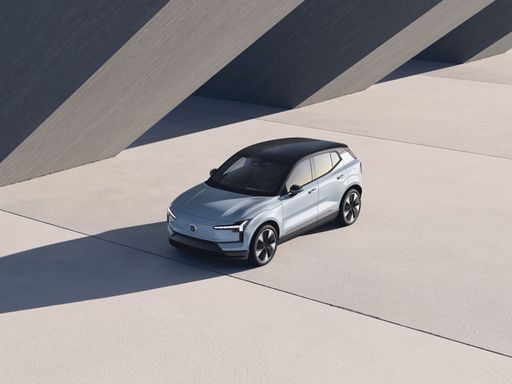 @ Volvo
@ Volvo
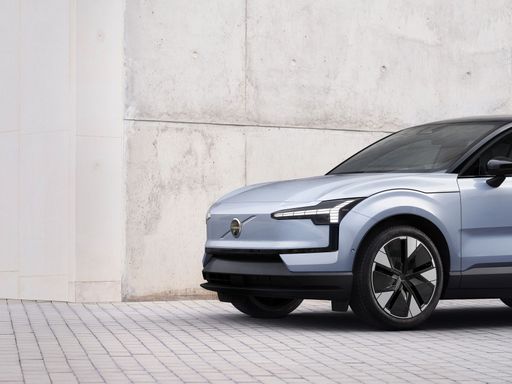 @ Volvo
@ Volvo
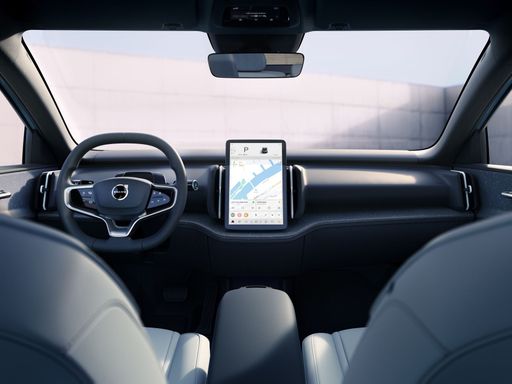 @ Volvo
@ Volvo
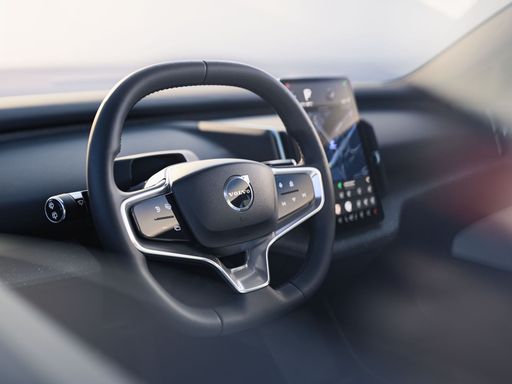 @ Volvo
@ Volvo
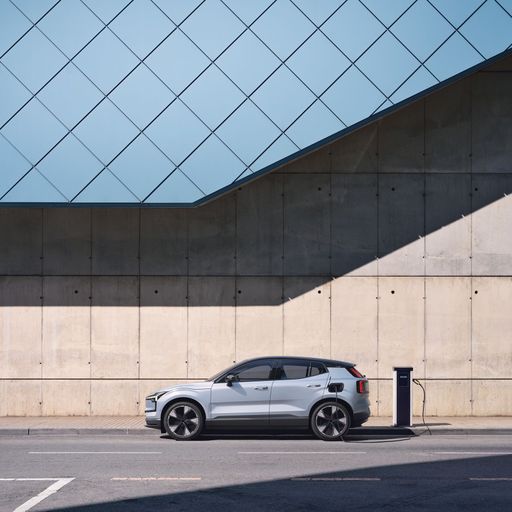 @ Volvo
@ Volvo

|

|
|
|
|
Costs and Consumption |
|
|---|---|
|
Price
20100 - 25800 £
|
Price
33000 - 49100 £
|
|
Consumption L/100km
5.4 - 5.5 L
|
Consumption L/100km
-
|
|
Consumption kWh/100km
-
|
Consumption kWh/100km
17 - 18.7 kWh
|
|
Electric Range
-
|
Electric Range
339 - 476 km
|
|
Battery Capacity
-
|
Battery Capacity
49 - 65 kWh
|
|
co2
124 g/km
|
co2
0 g/km
|
|
Fuel tank capacity
40 L
|
Fuel tank capacity
-
|
Dimensions and Body |
|
|---|---|
|
Body Type
SUV
|
Body Type
SUV
|
|
Seats
5
|
Seats
5
|
|
Doors
5
|
Doors
5
|
|
Curb weight
1170 - 1195 kg
|
Curb weight
1840 - 1960 kg
|
|
Trunk capacity
411 L
|
Trunk capacity
318 L
|
|
Length
4180 mm
|
Length
4233 mm
|
|
Width
1775 mm
|
Width
1838 mm
|
|
Height
1500 mm
|
Height
1550 - 1567 mm
|
|
Payload
460 - 465 kg
|
Payload
370 - 390 kg
|
Engine and Performance |
|
|---|---|
|
Engine Type
Petrol
|
Engine Type
Electric
|
|
Transmission
Manuel, Automatic
|
Transmission
Automatic
|
|
Transmission Detail
Manual Gearbox, Dual-Clutch Automatic
|
Transmission Detail
Reduction Gearbox
|
|
Drive Type
Front-Wheel Drive
|
Drive Type
Rear-Wheel Drive, All-Wheel Drive
|
|
Power HP
100 HP
|
Power HP
272 - 428 HP
|
|
Acceleration 0-100km/h
11.3 - 12.4 s
|
Acceleration 0-100km/h
3.6 - 5.7 s
|
|
Max Speed
176 - 179 km/h
|
Max Speed
180 km/h
|
|
Torque
172 - 200 Nm
|
Torque
343 - 543 Nm
|
|
Number of Cylinders
3
|
Number of Cylinders
-
|
|
Power kW
74 kW
|
Power kW
200 - 315 kW
|
|
Engine capacity
998 cm3
|
Engine capacity
-
|
General |
|
|---|---|
|
Model Year
2024
|
Model Year
2024 - 2025
|
|
CO2 Efficiency Class
D
|
CO2 Efficiency Class
A
|
|
Brand
Hyundai
|
Brand
Volvo
|
Hyundai Bayon
Introducing the Hyundai Bayon: A New Era in Compact SUVs
The Hyundai Bayon, a compact SUV designed with urban adventurers in mind, is making waves with its exceptional blend of style, performance, and technology. The brand has pulled out all the stops to ensure that the Bayon stands out in the crowded SUV market, offering a vehicle that is both practical and innovative.
Sleek Design and Cutting-Edge Aerodynamics
The Bayon features a striking exterior design, characterised by its bold lines and angular shapes. With a length of 4180 mm, a width of 1775 mm, and a height of 1500 mm, the Bayon commands attention with its modern appeal and aerodynamic efficiency. These dimensions not only contribute to its sleek design but also enhance fuel efficiency, achieving an impressive 5.4 L/100 km.
Engine Performance and Specifications
Under the bonnet, the Bayon is powered by a 1.0-litre T-GDI petrol engine, delivering a robust 100 PS or 74 kW. This engine is available with either a manual or automatic gearbox, meeting varied driver preferences. The front-wheel-drive system complements its urban-centric design, ensuring a smooth and responsive ride.
Maximised Interior Space and Comfort
The spacious interior of the Bayon accommodates up to five passengers comfortably. The vehicle boasts a boot space of 411 litres, perfect for both everyday use and weekend getaways. The cabin is designed with practicality and technology in mind, with intuitive controls and ample storage options.
Advanced Technology and Connectivity
Hyundai has equipped the Bayon with state-of-the-art technology to enhance the driving experience. The SUV features a high-resolution touchscreen, offering seamless connectivity with Apple CarPlay and Android Auto. Safety is also a priority, with multiple driver assistance systems including lane-keeping assist and forward collision avoidance assist.
Environmental Efficiency
Despite its powerful performance, the Bayon achieves a respectable CO2 efficiency class of D, with emissions as low as 122 g/km. This balance between performance and environmental responsibility makes the Bayon an attractive option for conscientious drivers.
Affordability and Market Appeal
The Hyundai Bayon is competitively priced, ranging from €22,900 to €29,600. Its affordable running costs, estimated at 32.3 to 36.4 cents per kilometre, further enhance its appeal to budget-conscious consumers. With monthly costs ranging from €806 to €909, the Bayon provides excellent value without compromising on features or performance.
Final Thoughts
The Hyundai Bayon truly stands out in the compact SUV segment, combining style, innovation, and practicality in an appealing package. It offers a versatile driving experience suited to the demands of modern urban living, making it a top contender in its class. As Hyundai continues to champion forward-thinking design and technology, the Bayon is a testament to the company's ongoing commitment to excellence.
Volvo EX30
Unveiling the Volvo EX30
The automotive world is buzzing with excitement over the release of Volvo's latest electric vehicle: the Volvo EX30. This all-new addition to Volvo's lineup showcases the company's commitment to sustainability and innovation in the world of SUVs. Designed with precision and equipped with cutting-edge technology, the Volvo EX30 offers a compelling blend of performance, efficiency, and advanced features.
Technical Mastery Under the Hood
The Volvo EX30 comes with a range of powertrains to suit different driving preferences. Consumers can choose between the Single Motor and Twin Motor variants, with power outputs ranging from an impressive 272 PS to a robust 428 PS. The Twin Motor Performance version guarantees thrilling acceleration, reaching 0-100 km/h in just 3.6 seconds, making it one of the quickest electric SUVs available.
The EX30's efficiency is equally noteworthy, with an energy consumption rate starting at just 17 kWh/100km. Coupled with a battery capacity ranging from 49 to 65 kWh, this vehicle offers an impressive electric range spanning between 339 km and 476 km, depending on the chosen configuration.
Innovative and Sustainable Design
Volvo continues its quest for sustainability with the EX30, as evidenced by its zero CO2 emissions, contributing to a cleaner environment. The car's design prioritises both environmental consciousness and modern aesthetics, featuring recycled materials in its construction, without compromising on luxury or style.
Inside the cabin, the EX30 provides comfort and sophistication for up to five passengers, ensuring ample space and modern conveniences. The cabin's focus on ergonomics and understated luxury ensures that every journey is a pleasure.
Safety and Technology at Its Core
As with all Volvo vehicles, safety is paramount. The EX30 is no exception, equipped with an array of advanced safety features including state-of-the-art driver assistance systems to ensure maximum security on the road.
Furthermore, the vehicle's infotainment system is designed to provide seamless connectivity and entertainment options for the tech-savvy driver. The integration of intuitive controls and a responsive interface makes operating the vehicle's features an effortless experience.
Conclusion
The Volvo EX30 sets a new benchmark for electric SUVs, combining impeccable performance with sustainability and innovation. With a competitive price range of €39,790 to €55,290, this vehicle offers excellent value for those looking to embrace the future of motoring. Whether it's the cutting-edge technology, thrilling performance, or eco-conscious design, the Volvo EX30 is poised to become a leader in the electric vehicle market.
What drivetrain options does the Hyundai Bayon have?
Available configurations include Front-Wheel Drive.
The prices and data displayed are estimates based on German list prices and may vary by country. This information is not legally binding.
